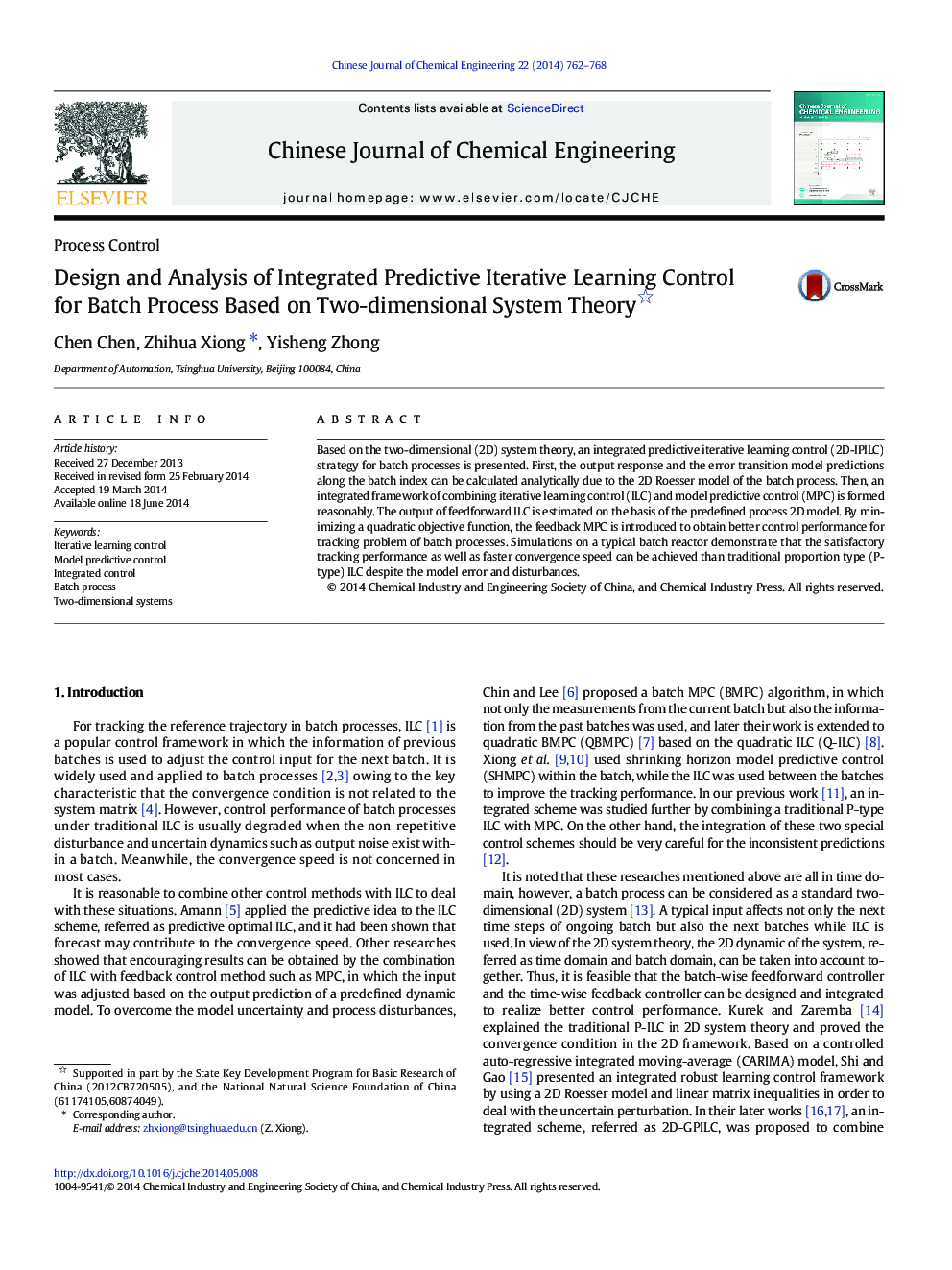| Article ID | Journal | Published Year | Pages | File Type |
|---|---|---|---|---|
| 166003 | Chinese Journal of Chemical Engineering | 2014 | 7 Pages |
Based on the two-dimensional (2D) system theory, an integrated predictive iterative learning control (2D-IPILC) strategy for batch processes is presented. First, the output response and the error transition model predictions along the batch index can be calculated analytically due to the 2D Roesser model of the batch process. Then, an integrated framework of combining iterative learning control (ILC) and model predictive control (MPC) is formed reasonably. The output of feedforward ILC is estimated on the basis of the predefined process 2D model. By minimizing a quadratic objective function, the feedback MPC is introduced to obtain better control performance for tracking problem of batch processes. Simulations on a typical batch reactor demonstrate that the satisfactory tracking performance as well as faster convergence speed can be achieved than traditional proportion type (P-type) ILC despite the model error and disturbances.
Graphical abstractBased on the two-dimensional (2D) system theory, an integrated predictive iterative learning control (2D-IPILC) strategy for batch processes is presented. First, the output response and the error transition model predictions can be calculated analytically. Then, an integrated framework of combining iterative learning control (ILC) and model predictive control (MPC) is formed reasonably. The output of feed forward ILC is estimated on the basis of the predefined 2D model. By minimizing a quadratic objective function, the feedback MPC is introduced to obtain better control performance for tracking problem. Simulations on a typical batch reactor demonstrate that the satisfactory tracking performance as well as faster convergence speed can be achieved than traditional proportion type (P-type) ILC despite the model error and disturbances.Figure optionsDownload full-size imageDownload as PowerPoint slide
